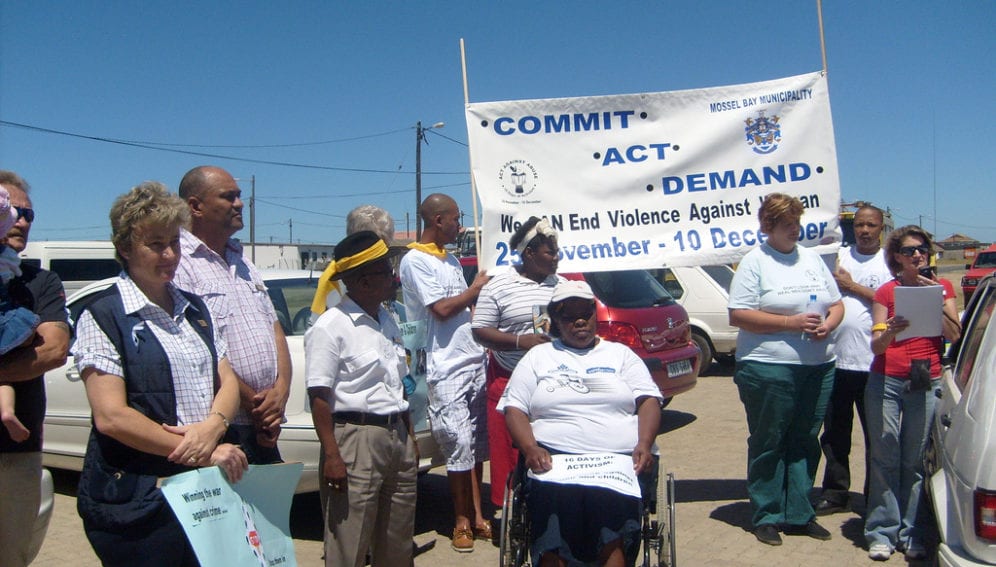By: Henrietta Miers
Send to a friend
The details you provide on this page will not be used to send unsolicited email, and will not be sold to a 3rd party. See privacy policy.
The evidence does not back a link between high temperatures and violence against women, says Henrietta Miers.
Climate change may trigger conflict, displacement or migration, which in turn may trigger higher levels of violence against women — but can it increase domestic violence and rape through temperature-related aggression, as one new study suggests? There is no evidence to prove this.
According to the study in Science, past climatic events have exerted significant influence on human conflict, from domestic violence to riots, civil wars and the break-up of institutions. Re-analysing data from 60 papers representing different disciplines, the study warns that rising greenhouse emissions could lead to even greater conflict if today's populations respond in the same way as past ones. [1]
According to the report, documented aggressive behaviours that respond to temperature include "domestic violence within households and violent crimes such as assault or rape".
Given the focus that international donors have placed on eliminating violence against women — including this year's pledge by the Group of Eight (G8) nations and the results of the UN's High-Level Panel working on the post-2015 development agenda — the links that this report makes between climate change and violence against women should be taken seriously.
“The links that this report makes between climate change and violence against women should be taken seriously.”
Henrietta Miers
But is there enough evidence?
There are several reports suggesting a link. A briefing paper on women displaced by the 2010 floods in Pakistan quoted an assessment by the UN Development Fund for Women (UNIFEM) and stated that, while "official reports of violence against women are scant", women were reporting sexual harassment in the displacement camps. [2]
EnviroNews Nigeria published a blog in March this year linking violence against women and children with the Boko Haram Islamic sect in the north of the country, and the effects of floods and conflicts over scarce grazing lands. At least 19 girls were raped and many others molested in camps where they took refuge from floods. [3]
Sophie Trevitt, writing for the Women Worldwide Initiative blog last year, cited an example in Kenya where above normal temperatures were linked with violence erupting between two pastoralist communities fighting for scarce natural resources — which led to, among other things, women being raped. [4]
Such ad-hoc reports — and there are plenty more — suggest that conflict, displacement and migration caused by climate change can lead to a rise in violence against women, but they do not show that temperature-related aggression leads to domestic violence and rape, as the Science study claims.
In the light of the importance that the international community is placing on the elimination of violence against women, such a claim needs to be unravelled and examined more closely.
 Henrietta Miers has worked across Africa and Asia as a gender and social development consultant for 15 years, specialising in gender policy. She is senior associate of WISE Development, a consulting company that focuses on boosting the economic opportunities for poor women.
Henrietta Miers has worked across Africa and Asia as a gender and social development consultant for 15 years, specialising in gender policy. She is senior associate of WISE Development, a consulting company that focuses on boosting the economic opportunities for poor women.
References
[1] Science doi: 10.1126/science.1235367 (2013)
[2] Internal Displacement Monitoring Centre and the Norwegian Refugee Council Briefing paper on flood-displaced women in Sindh Province, Pakistan (Internal Displacement Monitoring Centre, June 2011)
[3] Akosa, T. and Kazeem, T. Climate change and violence against women, girls (EnviroNews Nigeria, 18 March 2013)
[4] Trevitt, S. COP18: Climate Change Increases Violence Against Women (The Women Worldwide Initiative, 28 November 2012)














